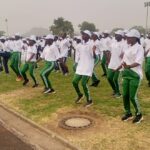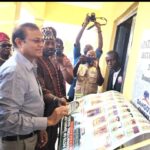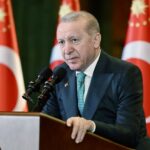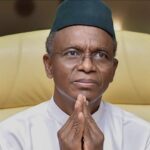By Deborah Coker
Sen. Ned Nwoko (PDP-Delta North), has canvassed the participation of the more than 20 million Nigerians in Diaspora in the country’s electoral process.
Nwoko told the News Agency of Nigeria (NAN) on Sunday in Abuja that such participation would enable them to vote and be voted for.
He also canvassed for four permanent seats, one each for America, Asia, Africa and Europe, to be allocated to them in both chambers of the National Assembly.
Nwoko said that the inclusion of the Nigerians in diaspora in the electoral process of the country had become imperative in view of their numbers, as well as their contributions to the socio-economic development of the country.
He said that statistical data showed that there were about 20 million Nigerian citizens resident in the diaspora.
He added that NAIRAMETRICS.com in its report on May 19, said that in 2018, Nigeria recorded $24 billion in diaspora remittances to Nigeria’s socio-economic development, $24 billion in 2019, $19.3 billion in 2021 and $19.8 billion in 2022.
“Thus, the importance of these contributions by Nigerians in the diaspora cannot be overemphasised,” he said.
Nwoko disclosed that he had already sponsored a “Bill for an Act to Alter the 1999 Constitution (As Altered) to Provide for Diaspora Voting and for Related Matters” on the floor of the Senate.
He added that the bill, which had passed its first reading in the Senate sought to address the painful disenfranchisement of Nigerians in Diaspora from partaking in the electoral process.
Nwoko also explained that the bill sought to alter sections 48, 49, 71, 72, 77 and 117 of the 1999 Constitution of the Federal Republic of Nigeria (as altered).
It is provided for diaspora voting, with an increased number of senatorial districts from the hitherto 109 to 113, with four each designated to the Americas; South America, North America and Canada); Europe; Asia and Australia; and Africa.
Nwoko said,”The bill also seeks to increase the number of constituencies in the House of Representatives from 360 to 376, with 16 new constituencies of four each being designated to one diaspora Senatorial District for Nigerians in Diaspora.
“The bill further spells out voting qualifications and eligibility for Nigerian citizens in the diaspora.”
According to the lawmaker, statistical data shows that Nigeria’s population is about 200 million, while the population of Nigerian citizens resident in diaspora is about 20 million, which is 10 per cent of the country’s population.
Nwoko said, “In a proportional representation, 10 per cent of the present 109 Senatorial Districts in Nigeria is about 11 but this bill reduced diaspora senatorial districts to four each for the Americas (South America, North America and Canada); Europe; Asia and Australia; and Africa.
“Whereas 10 per cent of 360 constituencies, in the House of Representatives is 36 but this bill reduced it to 16 constituencies for Nigerians in diaspora, with four each for a Senatorial District in the diaspora.”d
He added that the issues being canvassed by people opposed to diaspora voting in Nigeria include that diaspora lacked the requisite information to understand the political trends in the country and it cost so much money to conduct.
“This has been addressed by the present digital age, where the entire world is connected by the internet, social networking and electronic media.
“On the issue of cost, eligible voters are required to register and vote at their respective embassies or high commission.
“Staff of the embassies is expected to conduct the registration and voting, under the guidance and supervision of INEC,” he explained
Nwoko added that diaspora voting was the new gale of electoral reform blowing across the world, and embraced by many progressive nations and Nigeria being the giant of Africa and the most populated black nation in the world was yet to embrace it.
“Nigerians in diaspora are seriously yearning to actively participate and be involved in the elections and governance of their country.
“To ensure that Nigerian citizens in the diaspora exercise their right to vote, the starting point should be to create an enabling environment that will not be manipulated to suit individuals and partisan Interests,” he added. (NAN)
Edited by Bashir Rabe Mani












